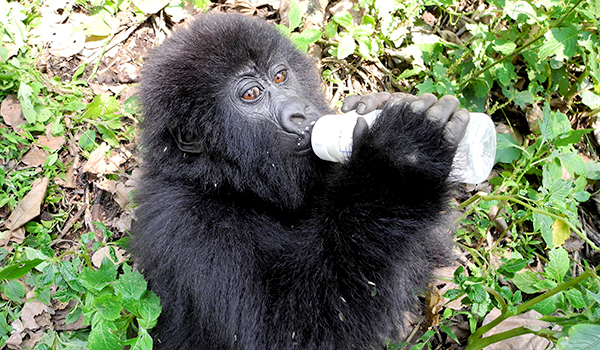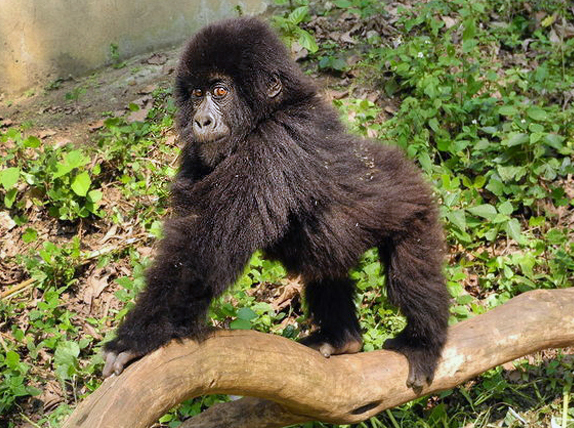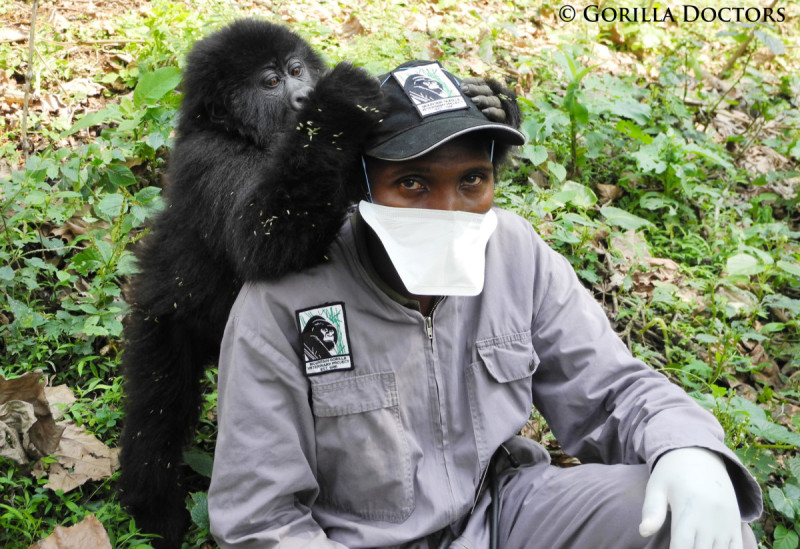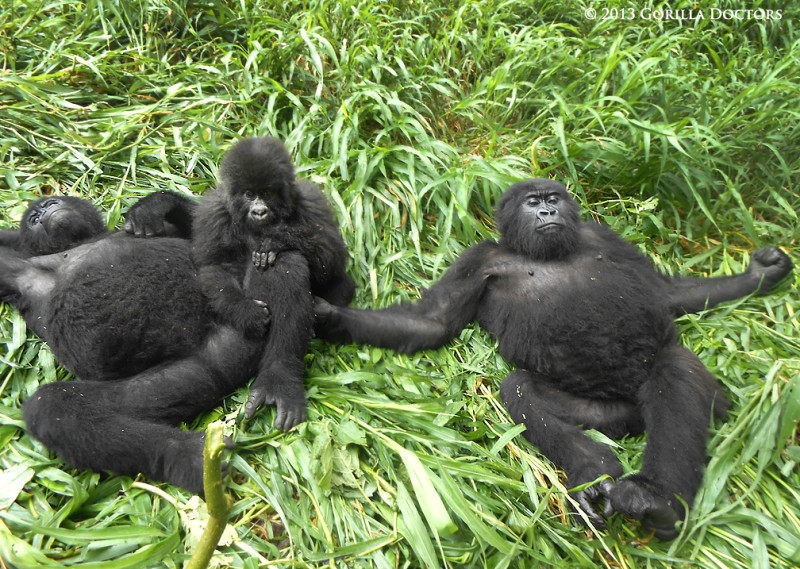Matabishi
Matabishi was found alone in a cornfield outside of Virunga National Park in the eastern Democratic Republic of Congo in late June 2013. He was ranging alone for days approximately 1 kilometer outside of the forest before a local individual alerted the wildlife authorities. The infant had a large wound on his back, possibly due to a rope restraint, suggesting he may have been a victim of gorilla trafficking and had been held captive by poachers for several weeks. ICCN rangers slept in the cornfield to protect the infant until the rescue, which took place on Sunday, June 23. The infant let Dr. Eddy approach him and allowed the Gorilla Doctor to administer a light sedative for the 27 kilometer, bumpy ride to Rumangabo. The infant took the ride very well, curled up safely in Dr. Eddy’s arms. Although it is likely that the infant was poached from a wild gorilla group, he was definitely over-habituated to humans at the time of his rescue. The youngster was most comfortable resting next to people or sitting in someone’s lap. Once at Senkwekwe, Gorilla Doctors conducted a complete quarantine check-in protocol: they performed a physical examination, collected blood, urine and swabs for diagnostic tests, administered a skin test for tuberculosis, and gave the orphan his first series of polio and measles-mumps-rubella immunizations. Matabishi was also mildly dehydrated, so subcutaneous fluids were administered.

Innocent Mburanumwe, the Chief of Monitoring and Rangers at Virunga National Park, named the orphan “Matabishi,” which means “bonus” in Swahili: as soon as park rangers were notified of the solitary infant ranging outside of the park, they checked the two habituated mountain gorilla groups ranging nearby, Mapuwa and Lulengo, for missing gorillas. All individuals were accounted for, making little Matabishi a “bonus” gorilla.


“The general health of the infant appeared to be good” said Gorilla Doctors Head DRC Field Vet Dr. Eddy Kambale. “He was very active, had a good appetite, and was bright and alert. However, his haircoat was matted and filled with lice and burrs; he had clearly not been groomed in some time.”

It can be difficult to distinguish between a mountain and a Grauer’s gorilla based on appearance alone, especially at a young age. “With animals this young, we rely on genetics to determine the subspecies and ultimately, make sound scientific decisions on his future,” says Gorilla Doctors Director Dr. Mike Cranfield. It took several months to conduct a complete genetic analysis, but samples were collected and shipped to the Max Planck Institute and Matabishi was confirmed to be a mountain gorilla. Matabishi completed his quarantine period and, thanks to thorough medical care by Gorilla Doctors, regained his health. He was integrated into the group of three female mountain gorilla orphans (Maisha, Ndeze, and Ndakasi) in the large forested enclosure at the Senkwekwe Center in December 2013. Maisha vocalized joyously and took Matabishi in her arms when they were introduced. She immediately adopted the role of surrogate mother and protects Matabishi from any jealous bouts of antagonistic behavior from Ndeze and Ndakasi. Although Matabishi is an infant at this time, we hope that he will one day become the dominant silverback of the group and these gorillas will form a strong, cohesive family unit.
In the summer of 2017, the little orphan family suffered a loss when Maisha became extremely ill and passed away after many medical interventions and different types of treatment to try to save her. At the same time, another baby mountain gorilla, Yalala, who had been severely injured by a poacher’s snare, came into Gorilla Doctors medical care. Unfortunately, the injuries sustained from the snare were so severe that Yalala’s foot had to be amputated. It took several months for her to recover and learn to move around confidently in her enclosure and she is now ready to be integrated into the family of orphan mountain gorillas. We hope that Ndeze, Ndakasi and Matabishi will happily welcome Yalala into the group and the foursome will continue to thrive at the Senkwekwe Center.


 Donate
Donate